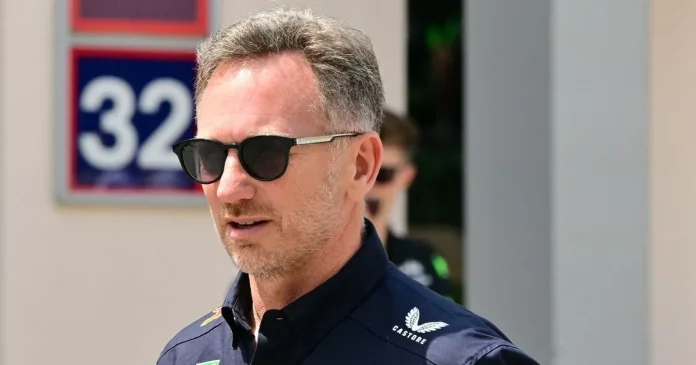Christian Horner made it clear he is “absolutely” against the idea of V10 engines returning to Formula 1. A meeting was held in the Bahrain Grand Prix paddock on Friday to discuss the feasibility of bringing back the noisy but petrol-guzzling power units which haven’t been used in the sport for 20 years.
The idea, brought to the table by FIA president Mohammed ben Sulayem who is keen to boost his popularity after a swathe of controversies, would be for the engines to run on sustainable fuels which would mean F1’s bid to be net zero carbon by 2030 would be unaffected.
However, the idea was always going to meet stiff opposition from some engine manufacturers, particularly those who are only involved in the sport because of the new engine regulations which will see a greater reliance on electrical power from 2026.
Audi chief Gernot Dollner, whose company has sunk hundreds of millions into its entry into F1 from next year, flew in to Bahrain for the talks and voiced his opposition. As did Koji Watanabe, president of Honda Racing, which only decided to stay in F1 because of the new regulations after their initial decision to quit the sport.
And Horner, whose Red Bull team is building its own engines for the first time for 2026 in partnership with Ford, has also come out against the proposal. Asked by Sky Sports if he would support the return of 10-cylinder engines, he replied: “No we absolutely don’t.
“We’re building an infrastructure based on the current set of regulations, and so whatever the future regulations are, it needs to take into account the resources that teams have and you know, we’ve structured our business around this current set of regs.”
Those regulations which come into force currently have an agreed end date of 2031. While it is not impossible for a change to be made before then, there would need to be a significant appetite to do so and a super majority of four out of six engine manufacturers voting in favour would be required – support which is simply not yet there.
Formula 1 fans can watch every practice, qualifying and race live with Sky’s new Essential TV and Sky Sports bundle in a new deal that saves £192.
As well as Sky Sports access, this includes more than 100 TV channels and free subscriptions to Netflix and Discovery+.
Teams are already designing their 2026 cars and have been working on the new engines for years, meaning it is far too late to turn back now. Horner added: “We’re excited about ’26. “It’s rapidly approaching, and in the engine world, it’s literally tomorrow. But, you know, we’re making very good headway and pleased with progress.”
In a news release describing the purposes of the meeting, the FIA said: “In opening the meeting, the FIA President was keen to stress that the purpose of the gathering was to seek cost-effective solutions to safeguard the long-term sustainability of the sport and the business of Formula 1. The FIA has firmly committed to the 2026 Formula 1 regulations.
“The FIA technical department, together with a number of stakeholders, has invested a lot of time in the framing of the 2026 regulations on hybrid Power Units with 100 percent sustainable fuel. The 2026 regulations, governing power unit and chassis, have attracted new power unit manufacturers to the sport – underlining that for the 2026 cycle, the correct technical path has been chosen.”
The conclusions reached in the meeting were:
At Reach and across our entities we and our partners use information collected through cookies and other identifiers from your device to improve experience on our site, analyse how it is used and to show personalised advertising. You can opt out of the sale or sharing of your data, at any time clicking the “Do Not Sell or Share my Data” button at the bottom of the webpage. Please note that your preferences are browser specific. Use of our website and any of our services represents your acceptance of the use of cookies and consent to the practices described in our Privacy Notice and Cookie Notice.


